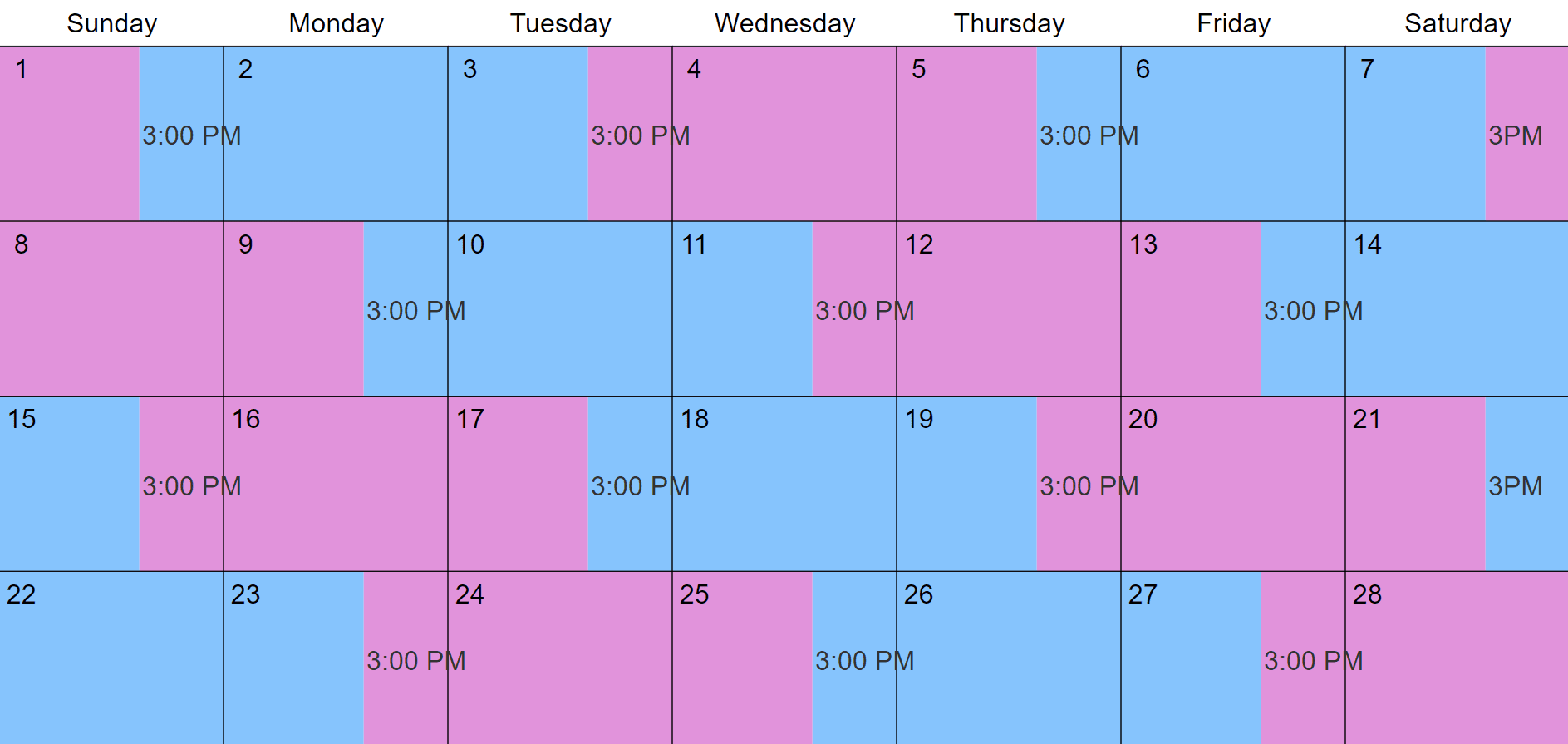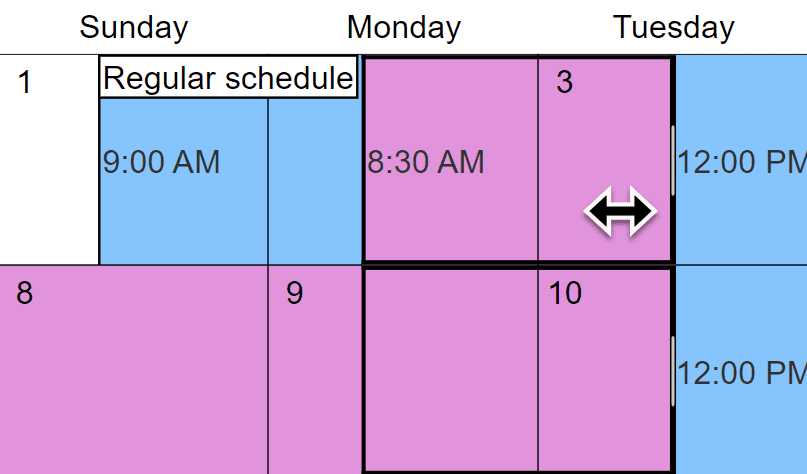Arizona Parenting Time Schedule Guidelines (Visitation)
Your parenting time schedule is the part of your parenting plan that explains when children live and spend time with each parent.
In a settlement, parents agree on a schedule they create together, often with the help of lawyers or a mediator.
When parents can't agree, each submits their own proposed schedule in trial, and a judge decides parenting time after assessing the children's best interests.
Visualize your schedule. Get a written parenting plan. Calculate your parenting time.
Whenever possible, the court prefers parents to share time more or less equally (e.g., in a 50/50 split). It's common, however, for children to live with one parent more than the other (e.g., in a 60/40, 70/30, or 80/20 division). Keep in mind that parenting time affects child support payments.
When a parent poses a risk to the children's safety or emotional well-being, the court may order supervised parenting time.
To help ensure parents comply with orders and accurately count parenting time for your child support calculation, track each parent's time with the children.
Showing the details of your schedule
A written version of your schedule is required. Experts recommend also including a visual calendar, which is generally easier to understand and follow. In written and visual explanations, clearly note start and end times (e.g., 4:00 p.m. Friday to 8:00 a.m. Monday for extended weekend visits).
Your schedule should be accompanied by details of how parenting time will work (more below).
To create a schedule, you can use your county's form or the Custody X Change app, which guides you through each step.
Whether you're preparing for negotiations, a settlement or a trial, tailor your schedule to your children's unique needs and your family's situation. Be sure to review the Arizona Planning for Parenting Time guide.
Holidays, school breaks and vacations
If parenting time changes when children have a school break longer than four days, explain how and include a school break schedule.
You're also required to make a holiday schedule. Often, parents alternate holidays on a yearly basis. For example, one parent might get Thanksgiving in even years, while the other gets it in odd years.
You also need rules for traveling with the children, such as how many vacation days with them each parent has, how much notice is required to travel with them, if the children can have passports, etc.
Exchanges and transportation
Explain who is responsible for transporting the children between parents, where pick-ups and drop-offs take place, and what happens when a parent is late.
If you have older children, consider including provisions for how they can transport themselves between parents' homes.
Supervised parenting time and exchanges
Supervised parenting time is common when a parent has spent little time with the children and in cases involving abuse, crime or substance use.
The courts can also order supervised exchanges, in which a third party or child safety agency helps transfer the children so parents have minimal or no interaction. This is often ordered in high-conflict cases and those involving domestic violence.
Common schedules
You have countless options for parenting time schedules. You can adapt a common schedule (like the ones below) to your family's needs or invent your own.
Equal parenting time schedules
When possible, courts prefer schedules that give parents equal time.
In the 3-4-4-3 schedule, children spend three days with one parent and then four days with the other. Then, it switches so children spend four days with the first parent and three days with the other.

Parents with long commutes between homes often use the alternating weeks schedule, in which children spend seven days with one parent, then seven days with the other.

In the alternating every 2 days schedule, children live with each parent for two days at a time, a good arrangement for parents who live close to each other or have young children.

Schedules for other divisions of parenting time
When children live with one parent more than the other, the parent with more time is called the residential parent, and the other parent is sometimes referred to as the nonresidential parent.
A common arrangement for these parents is the every extended weekend schedule. Children live with the residential parent during the week and spend Friday afternoon to Monday morning with the nonresidential parent.

The 4-3 schedule has children live with the residential parent for four days, then with the other for three days.

Another common arrangement has the children with the nonresidential parent every other weekend and one weekday evening per week. This is a variation of an alternating weekends schedule.

Long-distance schedules
When parents live more than 100 miles apart, they should use a long distance schedule, which has longer periods of parenting time with fewer exchanges.
In most cases, the court requires children to visit the long-distance parent at least four times per year (during summer and winter breaks, Thanksgiving or spring break, and the child's birthday). If parents live within reasonable driving distance, the court strongly suggests monthly visits.
Long distance schedules should also include provisions about children's travel between homes, such as if they can travel alone, how parents will share travel expenses, etc.
The easiest way to make a schedule
If you're like most parents, creating a parenting time schedule will feel daunting. How do you write something that meets legal requirements and doesn't leave any loose ends?
Custody X Change makes it easy. Either customize a schedule template, or click and drag in your custody calendar to make a schedule from scratch.

Then watch a full description appear in your parenting plan.

The combination of a visual and written schedule means your family will have no problem knowing who has the children when. Take advantage of Custody X Change to make your schedule as clear and thorough as can be.
Visualize your schedule. Get a written parenting plan. Calculate your parenting time.
